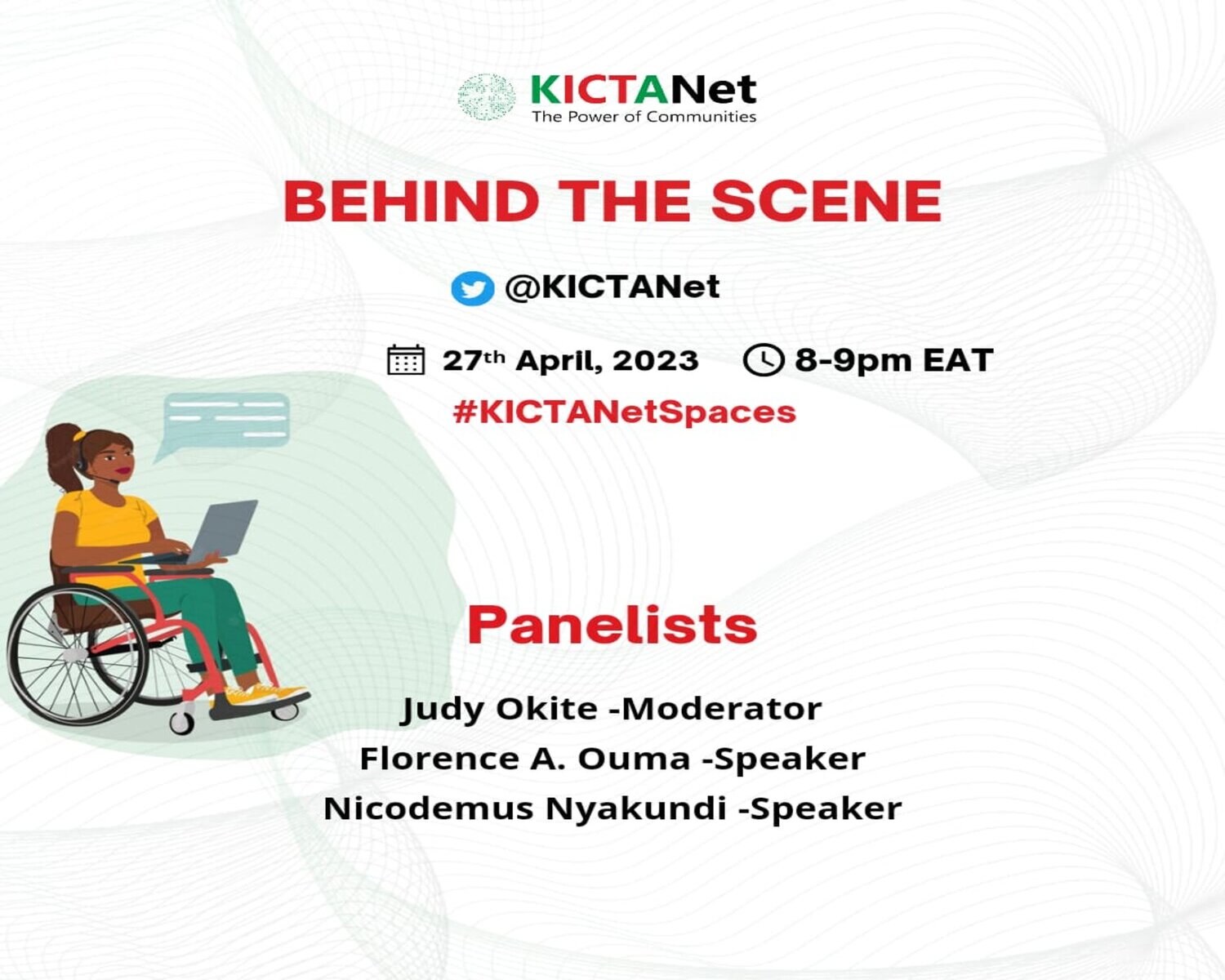After weeks of working tirelessly behind the scenes as researchers, Nicodemus Nyakundi and Florence Ouma had a lot to share with Ms. Judy Okite.
In one of the events leading to the launch of the report on the accessibility of government websites, KICTANet’s Digital Accessibility team held a Twitter space talk to discuss their experiences in assessing government websites.
In response to the COVID-19 lockdowns, the Government of Kenya expedited the digitization of its services to ensure uninterrupted service provision. As a result, various government ministries, including those that do not offer essential services, significantly enhanced their digital presence, with a vast amount of information available on their websites.
However, the accessibility of the information presented in these websites has raised concerns. Specifically, it is essential to ensure that individuals with visual, hearing, and cognitive disabilities can navigate, comprehend, and benefit from the information provided. Therefore, the question of accessibility has become a crucial consideration.
For a long time, there has been a call that government websites ought to be accessible for persons with disabilities. So we at KICTANet decided to have some data to back up this call. This way, KICTANet can clearly substantiate what we mean when we say a government website is not accessible to certain kinds of people. That’s why we developed a scorecard of accessibility indicators, the first of its kind in Kenya.
Several people with hearing disabilities were severely impacted by the mask mandate. Lip-reading, which is a crucial communication tool, became ineffective. However, the transition of government and other services to online platforms presented an opportunity to overcome communication barriers, as text-based options were now available in place of verbal or audio-based communication.
It is worth noting that this shift to digital service provision could only be advantageous if the information is presented in a format that is accessible to people with hearing disabilities.
What stood out for the fellows after doing the research? Nicodemus shares that now he’s super hawk-eyed when he’s doing work online or just navigating through. He even makes notes to himself about the kind of improvements a website can make to improve its accessibility.
Florence discovered much to her surprise that most government websites no longer take the trophy for the worst graphic user interface or user experience. There is still room for improvement, but we have come a long way.
The team’s goal is that the recommendations provided in the report will be implemented by the respective ministries in the long run. Failure to address the unequal access to information on government websites would result in digital marginalization for a significant segment of the Kenyan population.
Why is the conversation about digital accessibility seemingly coming in so late, and what are some of the misconceptions that contributed to this? Judy, who is an advocate for both physical and digital accessibility for a long time, shared just how grossly misunderstood digital accessibility is in Kenya.
One of the sad things was or has been when you tell someone or rather when you say that, your website is not accessible, the answer that I would always get was no, our link is up. There’s no problem with our link…
This statement clearly illustrated how grossly misunderstood even the concept of website accessibility is among the stakeholders. There is a need to add accessibility to our digital curriculum so that it is not reduced to broken links or colours on the website.
So which websites took home the accessibility trophy and which ones should go back to the drawing board? Listen to what the researchers and Judy discussed in this exciting Twitter Space talk here!
#KICTANetSpaceshttps://t.co/TlaUqc3RHW
— KICTANet (@KICTANet) April 27, 2023




